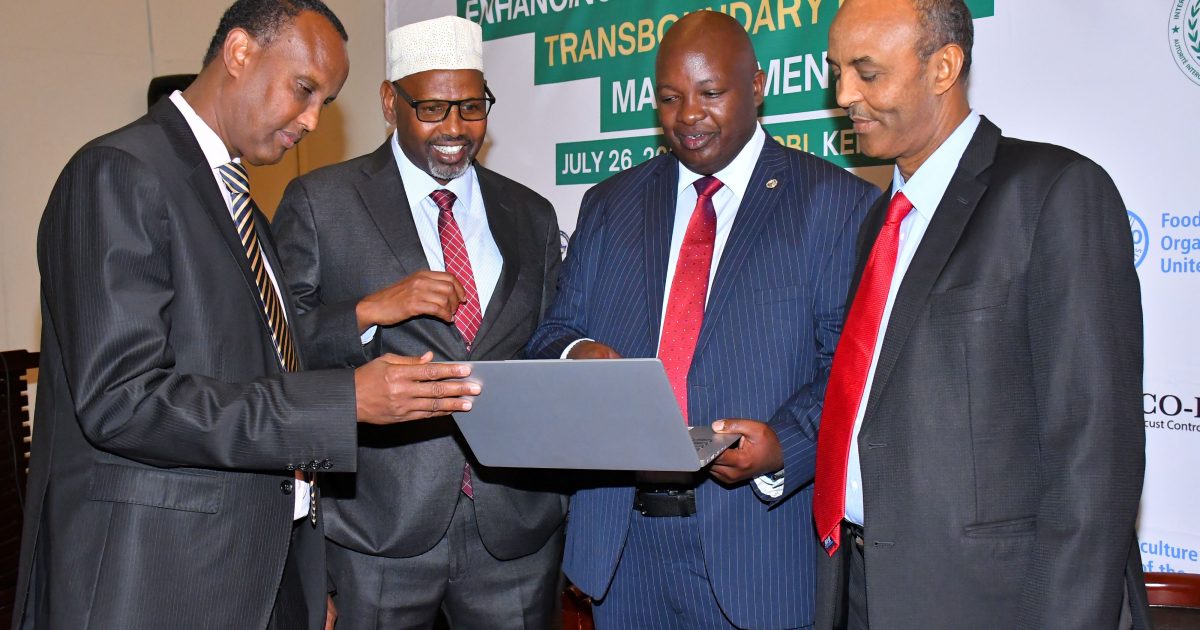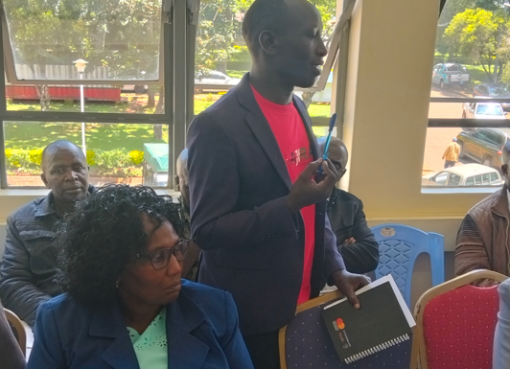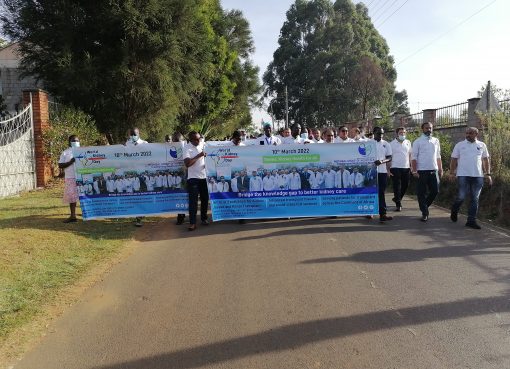The Intergovernmental Authority on Development (IGAD) has established a sustainable framework capable of effectively mitigating the impact of transboundary pests, thereby contributing to the overall agricultural stability and economic well-being of the IGAD region.
The Horn of Africa is highly vulnerable to severe weather changes and transboundary pests, with desert locusts being particularly a significant issue.
The locust invasion has caused considerable agricultural loss and has a prolonged impact on the region’s social-economic development, environmental health, and food insecurity.
IGAD and the Desert Locust Control Organisation for Easter Africa (DLCO-EA), while presenting their five-year project on enhancing regional cooperation and combating transboundary pests, revealed that climate change disrupts migration patterns of transboundary pests, affecting the timing and routes of their movements.
This shift, according to the two partners, challenges the efficacy of regional pest management strategies designed based on historical migration patterns.
In addition, changes in ecosystems and the availability of natural enemies of pests upset the balance of predator-prey relationships, allowing pest populations to surge without effective natural checks.
Speaking at a press briefing in Nairobi, DLCO-EA Director Moses Mwesigwa noted that it is imperative to improve the capacity of member states, insisting that early warning preparedness would address migratory pest upsurges and attacks.
“I strongly believe that through member country commitment, development partner support, and collaboration of the relevant food security promotion bodies, we will be able to build the regional capacity in controlling migratory pests,” said Mwesigwa.
The partners emphasised the critical role of collaborative transboundary initiatives in enhancing food security within the IGAD region amidst shifting climatic conditions, where the Joint Transboundary Pest Management Project for Djibouti, Ethiopia, and Somalia emerges as a crucial undertaking.
This, they said, would not only lead to promoting innovative pest control strategies by sharing resources, extension programmes, and training to farmers, monitoring and threshold; data analytical modelling so as to help in allocation of resources and implementing control measures; but also the use of unmanned aerial vehicles (UAVs) equipped with high resolution and the use of satellites to monitor broader areas.
Moreover, the agricultural landscape in the Horn of Africa grapples with significant challenges posed by transboundary pests, including desert locusts, qualia birds, and armyworms, all of which pose a severe threat to the region’s already fragile food security and agricultural productivity, its social economic development, and environmental health.
According to the partners, the Framework’s success story not only validates the significance of collaboration but also establishes a compelling case for shared knowledge and resource pooling among IGAD member states and relevant stakeholders; therefore, by promoting cooperation, the initiative lays the foundation for effective cross-border pest management, creating a platform that transcends national boundaries.
However, the unpredictability introduced by climate change makes traditional pest forecasting models less reliable, complicating the ability of countries in the region to prepare and respond effectively to emerging pest threats. Therefore, integrating climate-resilient strategies into regional pest management efforts becomes imperative to enhance the sustainability and effectiveness of initiatives like the Emergency Locust Response Program (ELRP).
Nevertheless, the ongoing success of collaborative efforts hinges on adaptive approaches that consider the evolving climate conditions and their profound influence on the behaviour and prevalence of transboundary pests in the regions.
Making his remarks, Somalia’s Minister for Agriculture, Asad Abdirizak, acknowledged the efforts and roles that IGAD and ICPAC play, saying that Somalia is at a frontline state and fully recognises the need for stronger collaboration and coordination to limit the ability of transboundary pests to breed and spread to the region, causing serious economic damage by destroying crops, pastures, forests, and vegetation.
“Desert locusts and other transboundary pests are a common threat that can only be controlled by adopting a common approach. That is the reason for the formation of the IGAD Inter-Regional Platform for Sustainable Management of Desert Locust and Other Transboundary Pests and the MoU between Djibouti, Ethiopia, and Somalia,” he stated.
By Michael Omondi and Judy Totari





